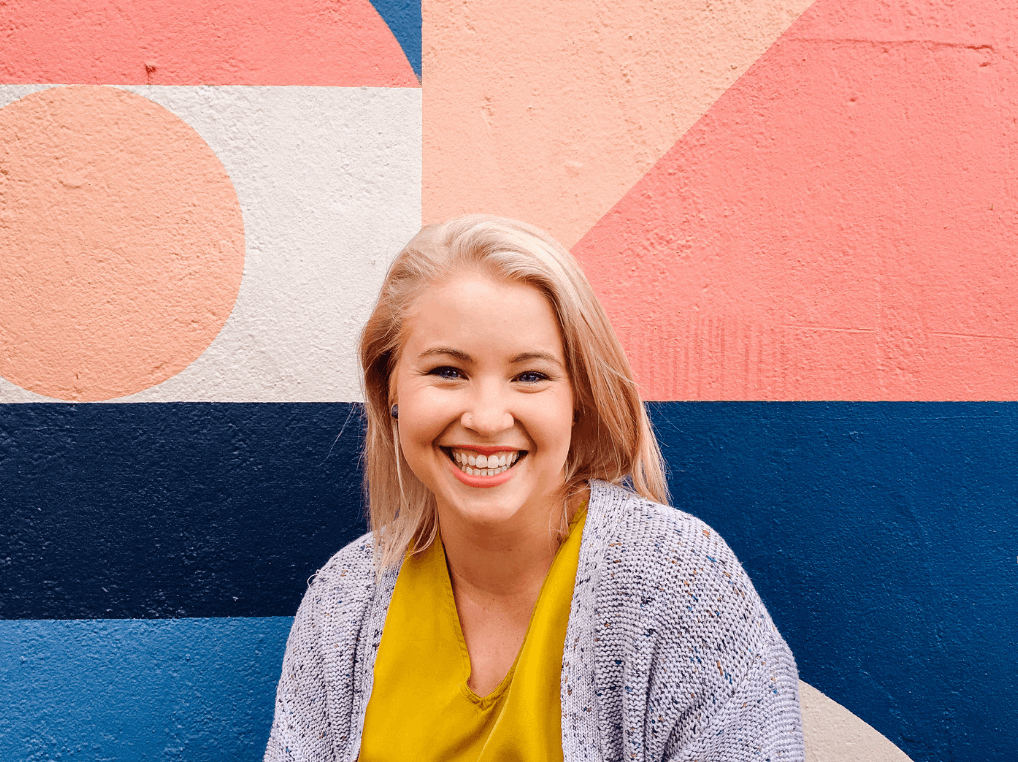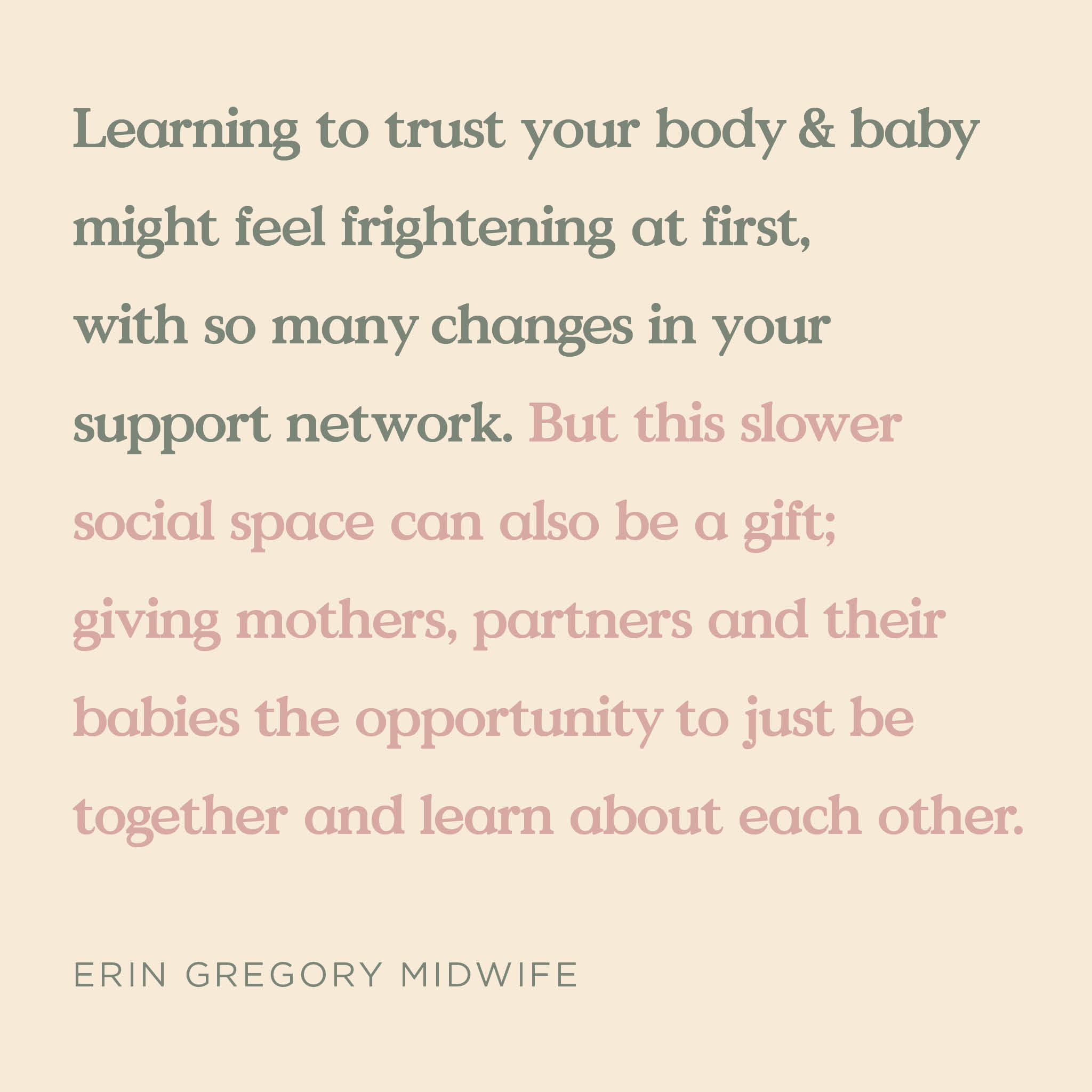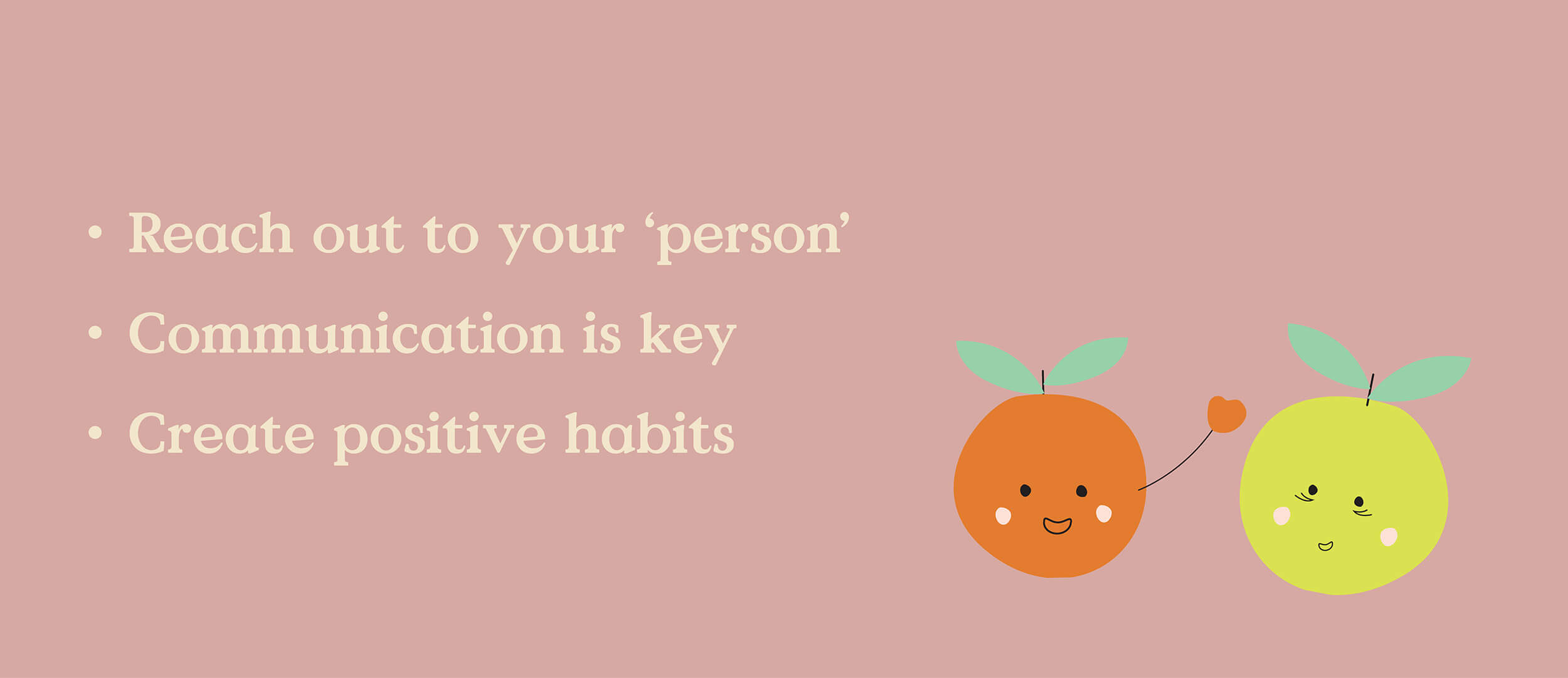
Becoming parents during a pandemic
Becoming parents during a pandemic
Parenthood can be an emotional rollercoaster at the best of times, but in the midst of a global pandemic, it’s understandable that new parents and parents-to-be may be feeling anxious.
To help our community navigate the “new normal” of becoming a parent during a pandemic, we’ve partnered with midwife and childbirth educator Erin Gregory.
Over the coming months she’ll be sharing her advice, strategies and some helpful resources as our resident midwife.

We begin by chatting with Erin about some commonly asked questions, and misconceptions, surrounding the birthing and after-birth experience during COVID-19.
WILL MY BIRTHING EXPERIENCE BE DIFFERENT BECAUSE OF THE PANDEMIC?
Your care providers are still the same people with the same unwavering focus — the health and wellbeing of you and your baby. But who can take part in your birth, the protective equipment needed, and your antenatal experience might look very different, depending on the hospital, and where you are in Australia.
- In Victoria, women are currently attending most appointments and ultrasounds on their own with partners joining in via Facetime or Zoom.
- Most hospitals and birth centres are communicating frequently on social media with updates on COVID-19 screening requirements (if any) and changes in visitor policies.
- Women birthing at home are kept up-to-date by their independent midwives with changes in their practice.
- The advice remains clear that women and their babies should not be separated due to suspected or confirmed COVID-19 and all women should be supported to breastfeed if this is their choice.
WILL POSTNATAL CARE BE DIFFERENT ONCE MUM AND BABY ARE AT HOME?
As per normal, your local council will connect you with a maternal child health nurse who will be in contact soon after you get home to say “hi” and fill you in on what your local council is doing to support new families — likely a combination of telehealth appointments and drop-in visits. There is always physical care for families that need it.
If you feel you need extra support with breastfeeding, sleep and other issues, many allied health providers are still open with some restrictions on the number of appointments and type of appointments.
WHO CAN NEW PARENTS TURN TO FOR EXTRA SUPPORT?
COPE is a practical website that helps you identify the large spectrum of ‘normal’ in the adjustment to parenthood and when it’s time to seek professional care. The first step in working towards positive mental health is to start the conversation about how you’re feeling — this is true for both parents.
There are a few clever platforms out there connecting new mums all around their city, and even internationally, but the good old fashioned mother’s groups are still up and running in a virtual format. Maternal child health care nurses (MCHNs) in most councils will facilitate groups online. Connecting new parents sharing a universal experience is really important, even if it can only be done virtually.

HOW CAN NEW PARENTS HELP THEMSELVES DURING THIS TIME?
No doubt when you celebrated the news you were pregnant, you never imagined your precious little one would arrive into a world engulfed by a pandemic. It’s not surprising you might be feeling overwhelmed. Early parenting, in a pandemic or not, comes with some extreme highs and lows.
REACH OUT TO YOUR ‘PERSON’
Having someone you trust to help ground you and offer perspective, empathy and support is critical. Current times are making this difficult. With restrictions in place and fear abounding you would be forgiven for feeling your entire village has vanished. It hasn’t. Know that your people, your closest friends and family, will still find a way to be available for you. It might not be in the way you had envisaged; and it’s ok to feel disappointed about that. But don’t underestimate the power of human connection. Babies promote oxytocin (the hormone of love) which has the power to rewire our brains to form strong and lasting connections, even via Facetime or Zoom.
COMMUNICATION IS KEY
During these times of separation, you might need to become better at communicating your needs to your people. Get comfortable with the words ‘I need you’ and ‘I value you.’ Chances are, they’re thinking the best way they can help is just to leave you alone until you’re ‘settled.’ In ordinary times this often couldn’t be further from the truth, let alone the unprecedented times we are going through.
CREATE POSITIVE HABITS
- Make your bed every day — even if it’s at 5pm and you’re back in it at 8pm.
- Get out of the house once a day. Honestly, you will feel so much better for it.
- Share your thoughts out loud with your partner or friend. Your reserve tank can be topped up with a five-minute conversation. Closed-circuit conversations (in our own head) can perpetuate negative thoughts in early parenthood. Even talking to yourself in the mirror is a good circuit breaker.
- Skin-to-skin time with your baby is not just for the first few days — do it often! The neurological benefits for you, your partner and baby are enormous.
- Know that most things are a stage that shall pass. The broken sleep, the steep learning curve, physical healing, your relationship readjustments (including friendships) — even the pandemic — WILL END.
- Buy or borrow noise-cancelling headphones. A chance to slip off into the other room when your baby is being cared for by someone else can be so restorative; a break in sensory overload, attending your baby’s needs, the COVID-19 news cycle, and a chance to rest your healing pelvic floor muscles.
- Sign-up to a nappy subscription service, or order a newborn nappy bundle to get you started. It’ll be one less thing you have to worry about.

YOUR EXPERIENCE IS UNIQUE
This is something I wish I’d said to myself after we welcomed our first baby, loud and often. I was armed with a lot of academic knowledge but not a lot of womanly wisdom. Looking back, three babies later, I understand the critical importance of reminding new mothers to stop searching for a woman that has had ‘exactly’ the same birth experience or baby as they have had. These simply do not exist for the simple fact that we are all different.

